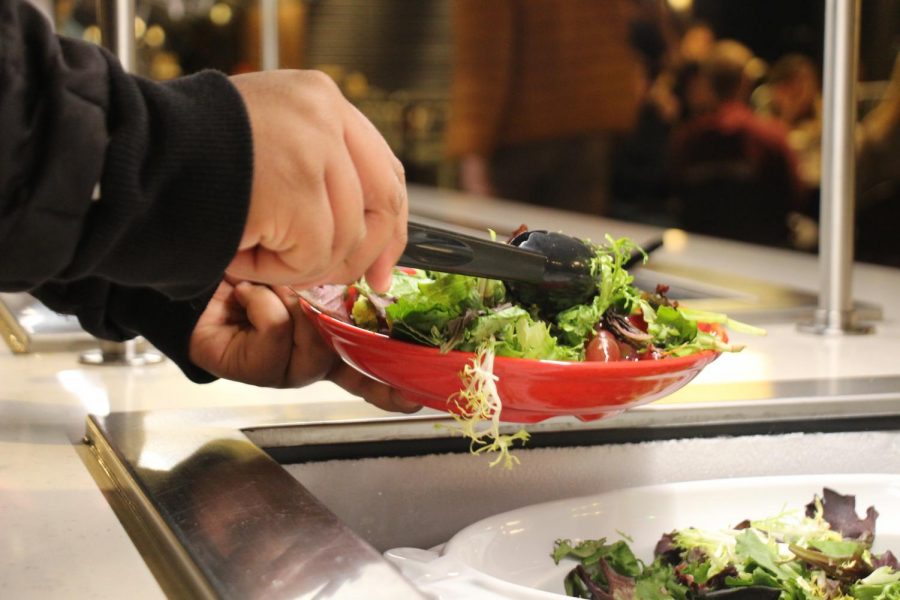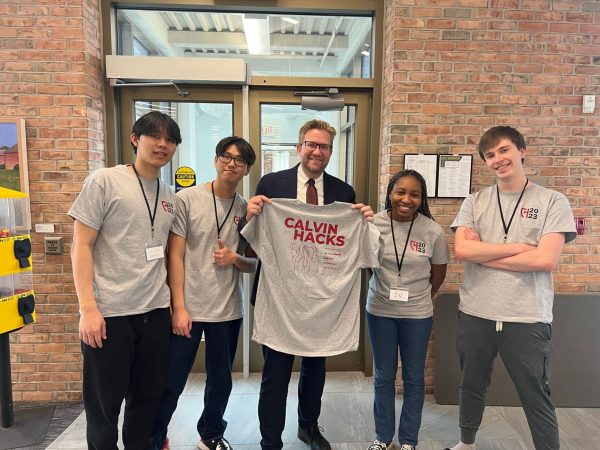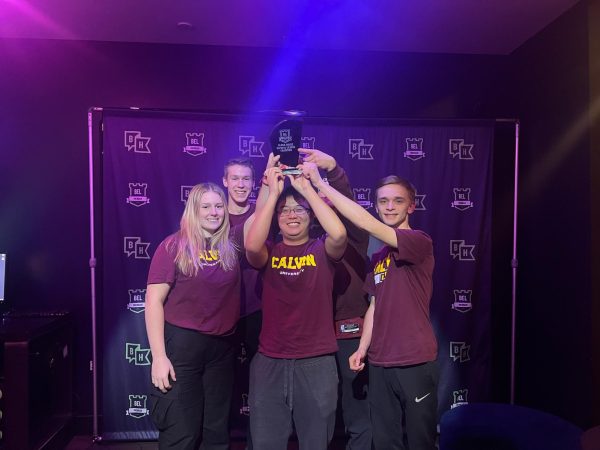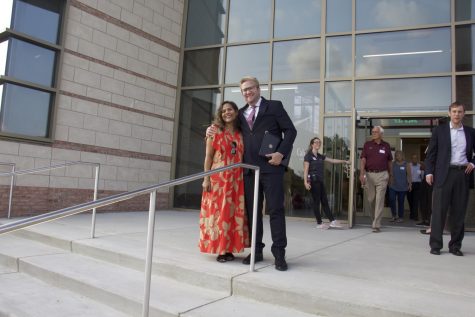Vegetarianism, veganism grows in popularity. Dining halls extend options
Both Commons and Knollcrest dining halls offer vegan options
Life as a college student is already difficult without adding dietary restrictions to the to-do list. But unique experiences, backgrounds and beliefs have led a group of Calvin University students to choose different eating habits as vegetarians or vegans. Purposefully selecting a plant-based diet is gradually becoming more popular on Calvin’s campus. Student organizations and the dining halls are striving to support this transition.
For example, this year sophomore Matthew Doty created a new vegetarian and animal ethics club, Students for Compassionate Living. He invites all Calvin students, whether they are vegetarian or not, to get involved.
“We offer monthly programming, including a plant-based potluck, and we want to emphasize that we’re serious about talking with people who don’t buy into vegetarianism as well,” Doty said. “We’ll serve you food, have a discussion with you about ethics, and do so without judging.”
Additionally, Ryan Hartman, the production manager for Calvin Dining Services, talked to Chimes about Calvin’s recent efforts to be more accepting of and welcoming toward vegetarian and vegan students.
“We didn’t want… a separate area just for the vegans and vegetarians; they’re regular people just like everyone else,” he said. “We wanted at least one [vegetarian or vegan] option on every station all the way through dining services in both buildings. It’s been in the last year that we’ve started really focusing on that. You should be able to walk in anywhere and say, ‘I want pizza,’ and go get a vegan pizza if you want it.”
For some young adults, their time in college directly influenced their decision to become vegan or vegetarian. First-year Josie Aardema decided to be vegan in order to complement her identity as an environmental science major and future environmental activist.
“I just thought that if I was going to pursue a career where I wanted to save the environment then why wouldn’t I make my life choices match that?” she said.
Likewise, Doty was inspired by his philosophy professor to pursue vegetarianism.
“I would not be vegetarian if it weren’t for Matt Halteman’s gracious attitude and openness to conversation, and that’s what being animal ethics-conscious is fundamentally about,” he said.
For others, vegetarianism or veganism is such a deeply ingrained habit that they barely even “remember exactly what meat tastes like,” according to senior Michelle Koetje, who is a vegetarian.
Regardless, the motivations behind vegetarianism or veganism are largely the same for most students. In Koetje’s words: “It’s good for the environment; it’s good for your health.”
However, most vegetarians and vegans are aware that their chosen path is not easy and not everyone should or can be expected to completely follow it.
“I believe that all people should try to eat more plants as a proportion of their diet. That looks different for different people,” Doty admitted. “For some people, food is their only comfort in the tempestuous life that is college. For some people, it’s not the right time.”
Koetje had a similar mindset. “It’s hard to ask everyone to be completely done with meat because that’s never been the case in all of human history,” she said. “Meat has changed its place in culture; it’s gone from a delicacy to something you need every day. Meat plays such an important part in a ton of people’s lives and some people are never going to change their ways and that’s just how it is.”
Along with the obvious challenges that come with being vegetarian or vegan, there are also hidden benefits.
“In my experience, when I meet people who are vegan, like me, then they just tend to give me food that is vegan, which didn’t happen when I was not vegan so that’s pretty great,” Aardema said. “Before I was vegan I didn’t eat very healthy and so after I went vegan I started eating more protein because I paid [more] attention.”
Fortunately for those thinking about or currently adopting veganism or vegetarianism, the culture (both on Calvin’s campus and nation-wide) is shifting in that direction.
“Image is changing for the better. Real attitude change has been coming for years from grassroots movements around the country, and not just in rich liberal white cities,” Doty said. “This change has come because people have dared to speak up and take action, even when their community as a whole was opposed to it. That’s where change begins. Talk about [it], and act on it.”











